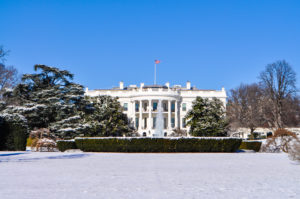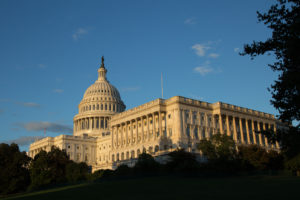Measuring the Obama Administration’s Historic Midnight Surge
Scholars model the impact of regulations issued in the final months of the Obama Administration.
Why We Need Encryption Now More Than Ever
Encryption should be seen not only as an essential consumer protection tool, but also as an essential national security tool.
The Future of Occupational Licensing Reform
There has been a massive expansion in the analysis and reform of occupational licensing—a trend to be viewed with dismay.
Potential Legislative Developments in the Regulatory State in 2017
The 115th Congress brings great promise for the Republican agenda, although not all planned reforms will happen overnight.
President Trump’s Regulatory Vision
How the incoming President might shape his strategy in the regulatory sphere.
The Discount Rate for the Social Cost of Carbon
A Trump Administration proposal that would reduce the social cost of carbon relies on an unjustified discount rate.
How Geographic Boundaries Determine the Social Cost of Carbon
Considering only the national impact of emissions would be a harmful, misguided move by the Trump administration.
The Unhealthy Return to Individual Responsibility in Health Policy
The Republicans’ ACA replacement plan espouses individual responsibility—a naïve and ill-advised approach to healthcare reform.
Improving Regulatory Analysis at Independent Agencies
Independent agencies should adopt four key analytical standards.
Improving the Process of Making Rules at Independent Agencies
Following certain procedural steps will strengthen independent agencies’ rulemaking processes.
The Future of the Education Department’s Power to Cancel Student Loan Debt
The Department only seems to use its compromise power in a very narrow set of cases, but there are signs that the zeitgeist may be shifting.
The Dark Side of Departmental Discretion
New regulations governing student debt leave too much power concentrated with Education officials.












